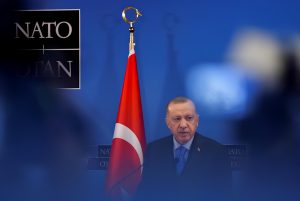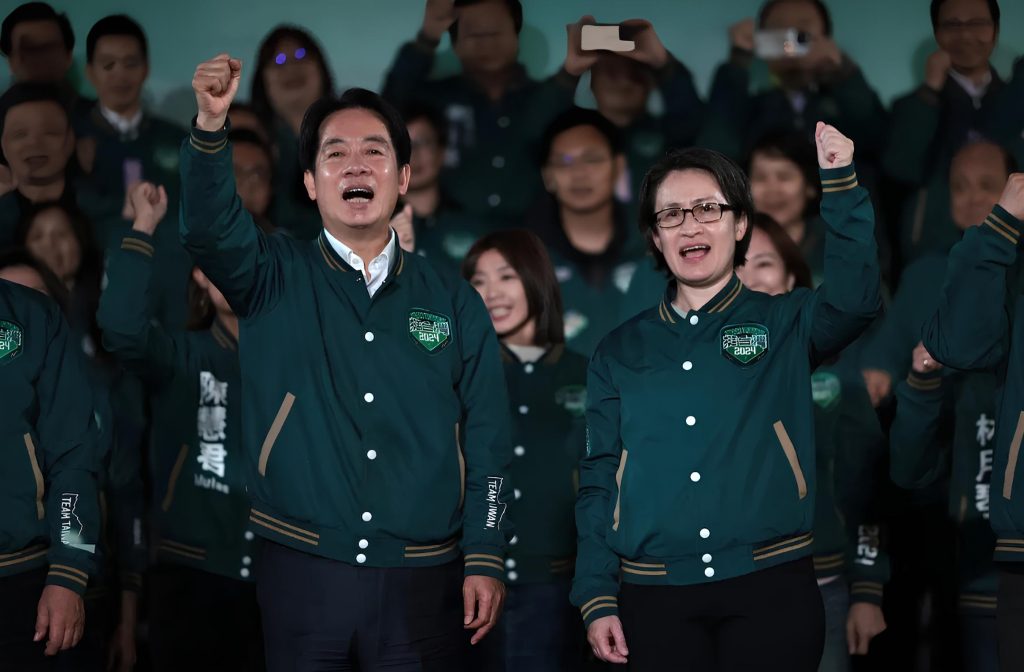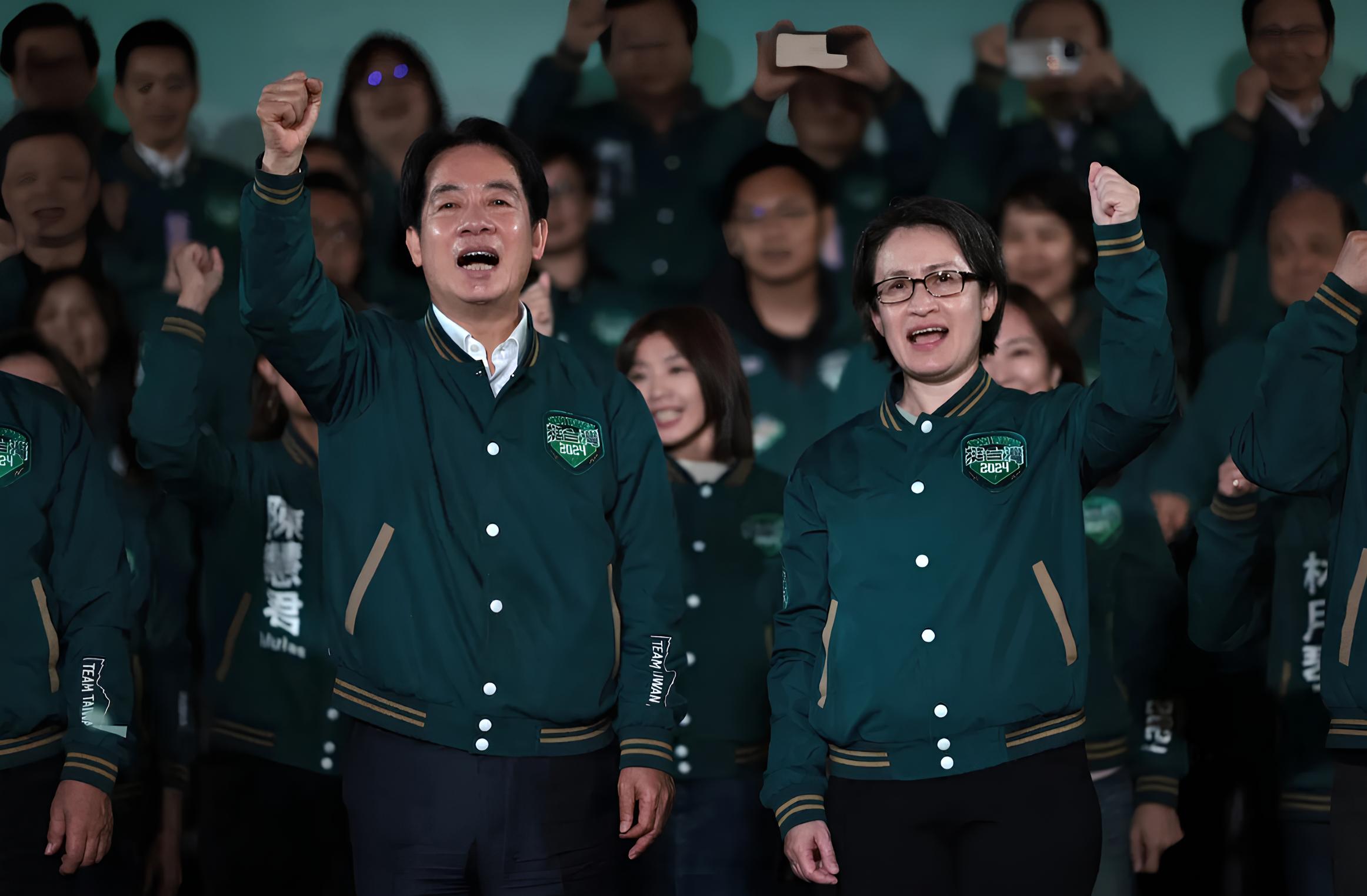








Lai Ching-te’s third term victory in Taiwan’s election underscores resilience against China’s interference, shaping geopolitical dynamics.


Welcome to Asia & The Pacific Brief, where we take a closer look at the unfolding dynamics surrounding Taiwan’s recent presidential election. In a historic victory, Lai Ching-te secured a third term, highlighting the island’s steadfast commitment to democratic values amidst escalating tensions with China. The campaign, set against the backdrop of persistent cross-strait disputes, revealed a complex landscape shaped by China’s influence operations.
In a historic electoral triumph, Lai Ching-te of Taiwan’s ruling Democratic Progressive Party (DPP) secured victory in the January 13, 2024, presidential election. Winning 40% of the vote, Lai’s victory marks an unprecedented third consecutive term for the DPP, highlighting the island’s commitment to democratic values amidst escalating tensions with China.
The election unfolded against the backdrop of simmering cross-strait tensions, with China’s persistent claims over Taiwan’s sovereignty. The central theme of the campaign revolved around how to navigate relations with Beijing, a superpower asserting control over the democratic island of 24 million people. China, despite never ruling Taiwan, continues to consider it a part of its territory and has not ruled out the possibility of military intervention.
Lai Ching-te, a former mayor of Tainan and the current vice president, emerged as the DPP candidate, appealing to hardline independence supporters. His victory marked a departure from China’s preferred candidate, as Lai’s approach aligns with the DPP’s view that Taiwan is a de facto sovereign nation needing to bolster defenses against China’s threats while deepening relations with fellow democratic countries.
Opposing Lai were Hou Yu-ih of the Kuomintang (KMT), a party advocating talks with the Communist Party to lower cross-strait tensions, and Ko Wen-je of the Taiwan People’s Party (TPP), positioning himself as a centrist offering a “third choice” between provoking and deferring to China. The election saw a fractured opposition, with cooperation plans between KMT and TPP collapsing.
Leading up to the election, disinformation campaigns emerged, signaling China’s influence operations. A 300-page ebook titled “The Secret History of Tsai Ing-wen” circulated false allegations about Taiwan’s president, suggesting the Chinese Communist Party’s handiwork. Artificial intelligence-generated videos on various platforms spread rumors and misinformation, a tactic aimed at undermining democratic processes.
China’s longstanding efforts to interfere in Taiwan’s elections intensified this time, focusing on local issues and targeting the DPP. The disinformation campaign underscored China’s attempt to sway the election in its favor, a strategy that mirrored concerns raised by U.S. officials regarding China’s interference in elections worldwide.
Despite China’s attempts to influence the election, Lai’s victory with a plurality of the vote solidifies the DPP’s hold on power, maintaining a stance against China and fostering closer ties with the United States. However, the pro-China KMT gained seats in the legislature, leaving Taiwan in a divided political landscape.
The outcome raises the prospect of more contentious debates in Taiwan’s political arena, akin to situations in other democracies, potentially amplifying information warfare. The results also indicate that while China’s influence operations were extensive, they did not alter the overall trajectory of Taiwan’s political landscape.
In the broader context, Taiwan’s election serves as a microcosm, offering insights into China’s evolving tactics in global information warfare. With more than 50 countries holding national elections this year, including larger democracies like India and Indonesia, experts warn that China may deploy similar tactics elsewhere, challenging the democratic processes of nations with strategic significance.
As Taiwan navigates its geopolitical challenges, Lai Ching-te’s presidency will shape the island’s stance against China and influence its relationships with global powers. The divided political landscape underscores the delicate balance Taiwan must maintain in international affairs, holding steadfast to its democratic values amid complex geopolitical dynamics.
Written By: GABRIEL RAMIREZ
Written By: DILARA SAHIN
Written By: DILRUBA YILMAZ
Written By: NILAY CELIK
Written By: ELDANIZ GUSSEINOV
Written By: JOSEF SCHOEFL
Written By: SELCAN BEDIRHANOGLU
Written By: FATIH CEYLAN
FA’s flagship evening newsletter guilding you through the most important world streis ofthe day. Delivered weekdays.
